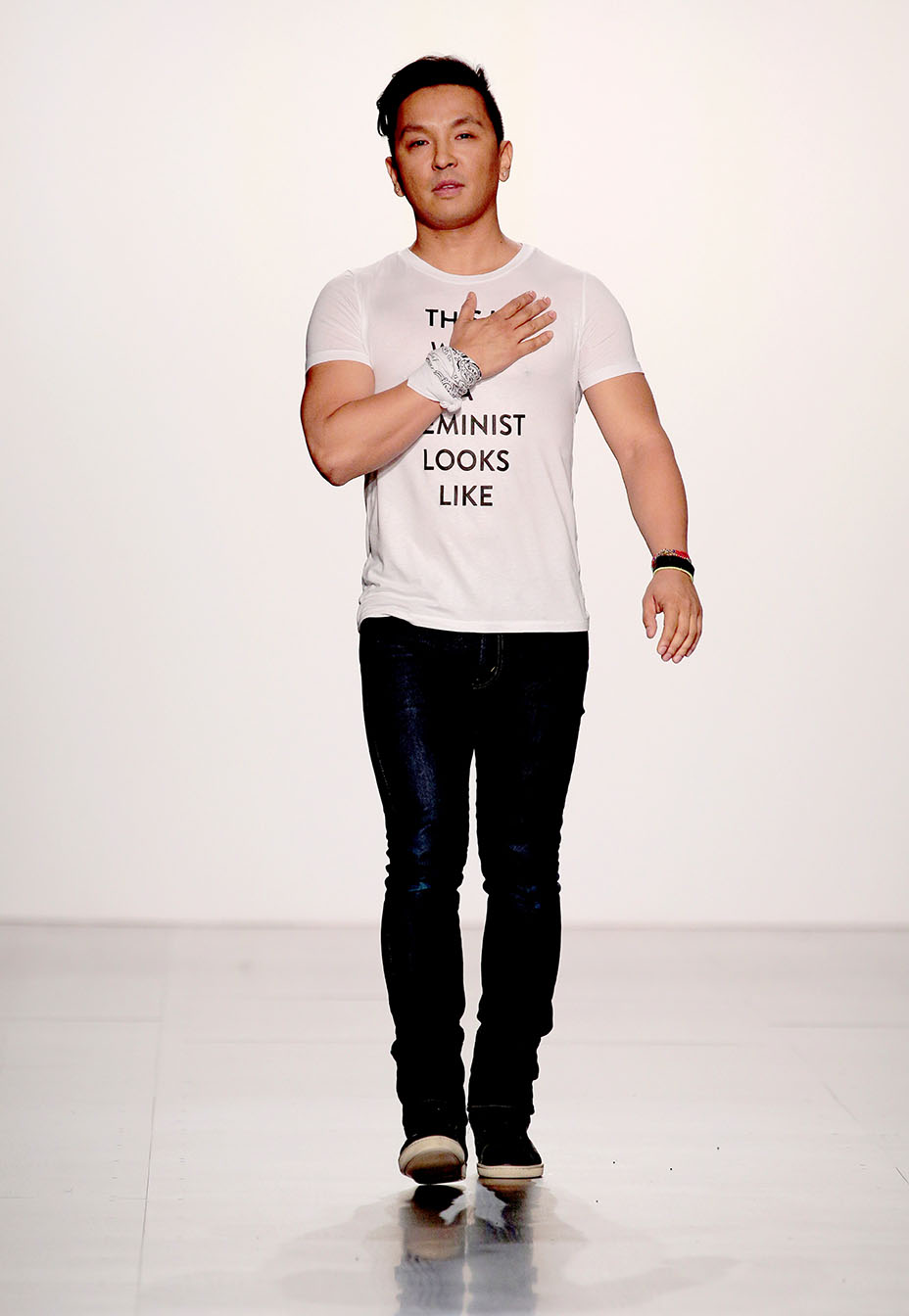This is What Capitalism Looks Like
 It’s no secret that politics has recently erupted movements in fashion. During this past fashion week, several designers used their collections as catalysts to deliver powerful, politically fueled messages to the world. Raf Simmons used his first line as chief creative officer of Calvin Klein to reflect the significance of immigrants. Public School satirized Trump’s infamous Make
It’s no secret that politics has recently erupted movements in fashion. During this past fashion week, several designers used their collections as catalysts to deliver powerful, politically fueled messages to the world. Raf Simmons used his first line as chief creative officer of Calvin Klein to reflect the significance of immigrants. Public School satirized Trump’s infamous Make  America Great Again caps by sending models down the runway in hats that read “Make America New York.” Designers made a clear protest of the recent policies that have been introduced by President Trump. While fashion and activism join forces for more interesting and impactful collections, the question arises of whether retailers are using these political movements for the interests of monetary gain or the interest of the cause itself.
America Great Again caps by sending models down the runway in hats that read “Make America New York.” Designers made a clear protest of the recent policies that have been introduced by President Trump. While fashion and activism join forces for more interesting and impactful collections, the question arises of whether retailers are using these political movements for the interests of monetary gain or the interest of the cause itself.
Is the fashion industry creating real feminists or just making it “trendy” to be one?
Fashion designer Prabal Garung, a Nepalese immigrant and a longtime advocate for female empowerment and inclusion in the fashion industry, made a statement when he finished his show with plus-sized models wearing t-shirts that read, “The Future is Female,” “Voices for Choices,” and “We Will Not Be Silenced.” He cited January’s Women’s March as the inspiration behind the finale.
With the vast inventory of feminist apparel available for purchase, including Garung’s designs, anyone can buy “This is what a feminist looks like” and snap a cute pic to post on their Instagram account. But in the process, are we stripping the movement of its core meaning? Corporations like Urban Outfitters are known for their trendy Millennial-geared apparel, and during the tumultuous 2016 elections, they shocked other retailers when they began selling politically fueled anti-Trump merchandise, violating the once unspoken rule of mass retail; never get political. But at the same time, Richard Hayne, Urban Outfitter’s CEO, has been known for his conservative views and in the past has donated funds to several republican senators. He was even known for trying to keep his stance on gay marriage hush-hush when his stores released pro same sex marriage clothing. Yet, Urban Outfitters continues to sell feminist attire and accessories, profiting off the unwitting negligence of unaware millennials.
But Urban isn’t the only one who’s guilty. While fast fashion companies like ASOS, H&M, and Forever 21 (who is especially notorious for creating controversial copycat fashion) are making pro–feminist wear accessible, they’re also turning feminism gimmicky by employing a vast array of (often cheesy) slogans, quotes and graphics aimed to sell and garner profit. As a result, the capitalistic treatment of feminism as if it were a brand or logo is making the movement feel materialistic.
While it’s empowering that designers are using their platforms to advocate for females, the matter that comes into question is whether they should reap the benefits of what is essentially the female struggle. This issue is perhaps even more problematic when we consider just who exactly the beneficiaries are. In the case of Urban Outfitters, Forever 21, H&M and ASOS, the recipients may be the male CEOs who head each company. Regardless of whether or not each of these powerful men really need that money, perhaps those funds would be better employed going to women’s organizations liked Planned Parenthood and Vera House, which help women in an unimaginable number of ways. Because feminism at its core, no matter race, age, gender, religion, etc., is about helping and supporting the advancement of women. Strong females have helped build this nation; they are leaders, fighters, activists, and role models; and that’s always in fashion.


